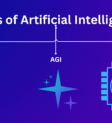Microsoft Gives Free Copilot to Federal Workers in Landmark GSA Deal
In a landmark move poised to redefine the landscape of public service, Microsoft has entered into a significant partnership with the U.S. General Services Administration (GSA), offering free access to its generative AI assistant, Microsoft 365 Copilot, to millions of U.S. federal workers. Announced on September 2, 2025, this initiative marks a pivotal moment in the government’s embrace of artificial intelligence, promising not only substantial cost savings but also a profound transformation in operational efficiency and citizen services.
A Strategic Leap for Public Service AI
The agreement, dubbed the “OneGov” deal, is more than just a software giveaway; it represents a strategic acceleration of AI adoption across federal agencies. Under this partnership, existing federal employees utilizing the secure Microsoft 365 G5 plan will receive a one-year, no-cost license for Microsoft 365 Copilot. This premium tier is specifically designed for agencies handling the nation’s most sensitive information, underscoring the commitment to high-level security from the outset. Beyond the free Copilot access, the deal also includes discounted rates on Azure cloud services and the elimination of data transfer fees, further reducing technological barriers for government modernization.
The financial implications are staggering. The GSA projects this agreement will save U.S. taxpayers an estimated $3.1 billion in its first year alone, with potential savings exceeding $6 billion over the next three years. This massive cost reduction is achieved by leveraging the collective purchasing power of the federal government, a strategy Federal Acquisition Service Commissioner Josh Gruenbaum described as a “paradigm shift” in federal procurement.
Prioritizing Security and Trust in Government AI
The integration of advanced AI into government operations naturally raises critical questions about data security, privacy, and compliance. Microsoft and the GSA have directly addressed these concerns. Microsoft’s cloud and AI services already hold FedRAMP High authorization, the federal government’s highest security certification for cloud systems. While Microsoft 365 Copilot itself received provisional authorization from the Department of Defense, full FedRAMP High approval is anticipated soon.
A core assurance for government users is that Copilot operates strictly within their Microsoft 365 Government Community Cloud (GCC) tenant compliance boundary. This architecture ensures that sensitive government information remains protected and is not used to train public AI models. The package further bolsters defenses by including advanced cybersecurity tools like Microsoft Sentinel and Entra ID, supporting the government’s “zero trust” security strategy, which mandates verification for all users and requests by default.

Transforming the Daily Work of Federal Employees
The immediate and tangible benefits of Copilot for federal workers are centered on boosting productivity and streamlining routine tasks. AI assistants like Copilot can automate a wide array of administrative functions, such as:
- Drafting reports and official communications
- Summarizing large volumes of text and complex documents
- Analyzing data sets to identify patterns and trends
- Assisting with processing claims and applications
- Enhancing customer service by automating responses to frequently asked questions
By offloading these time-consuming, repetitive tasks, Copilot frees up government employees to focus on more complex cases, critical thinking, and direct citizen engagement, where human expertise is irreplaceable. For instance, workers at the Social Security Administration could expedite benefit reviews, and passport agencies could process applications more quickly, leading to faster and more accurate services for citizens.
Recognizing that technology is only as valuable as its effective use, Microsoft has committed $20 million to comprehensive training and support programs. This investment aims to equip federal workers with the skills needed to seamlessly integrate Copilot into their daily workflows, transforming it from a novelty into an indispensable tool.

The Broader Implications: Paving the Way for a Smarter Public Sector
From an original perspective, Microsoft’s initiative transcends a mere commercial transaction; it is a foundational step towards embedding responsible AI at the heart of U.S. public service. By making advanced AI tools accessible and affordable (or free for a year), this partnership is set to accelerate the federal government’s AI Action Plan, pushing the nation to the forefront of AI adoption in the public sector. This move will likely serve as a blueprint and catalyst for state and local governments, encouraging broader AI integration nationwide.
The long-term impact could be immense, fostering a more agile, efficient, and responsive government. While the promise of AI is vast, responsible deployment, including addressing potential biases in training data and ensuring ethical use, remains paramount. Microsoft’s emphasis on secure, compliant AI within the GCC environment is a critical component in building public trust, which is essential for the successful, widespread adoption of these transformative technologies. This collaboration is not just about tools; it’s about empowering public servants to deliver on their missions more effectively and securely, ultimately enhancing the American people’s experience with their government.



